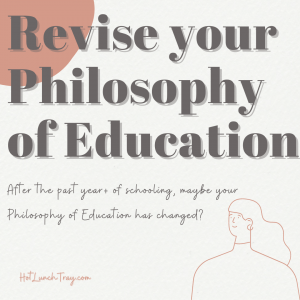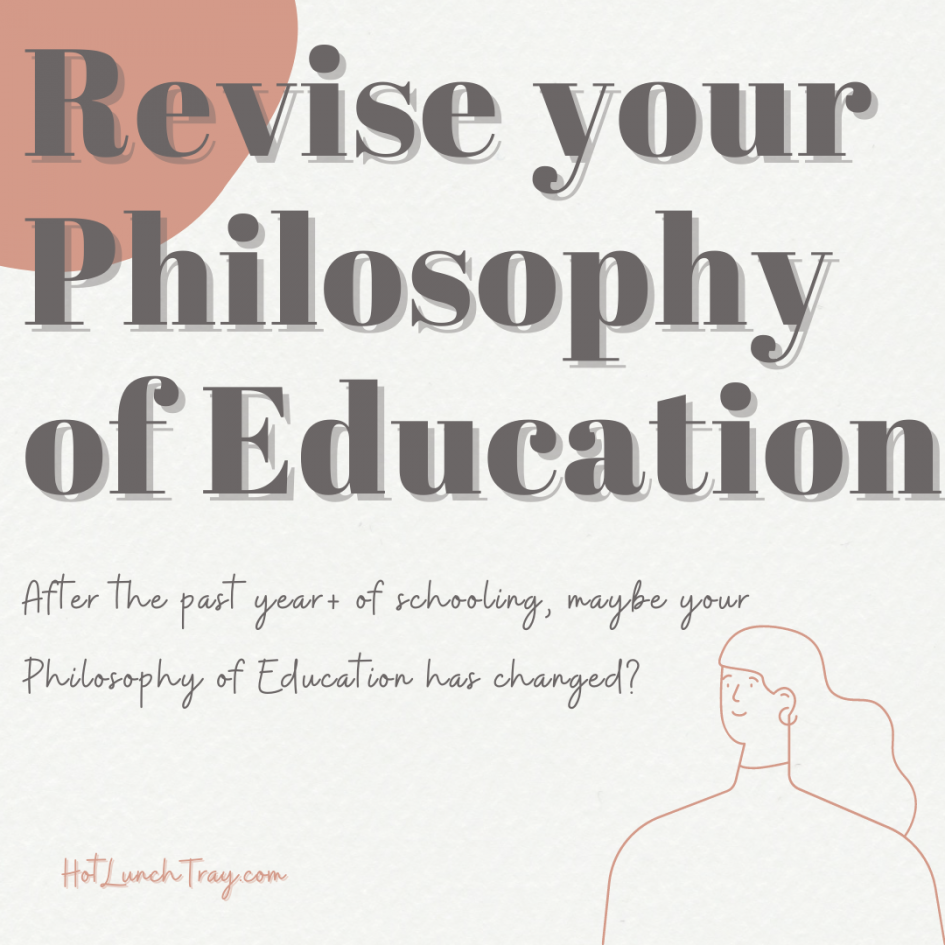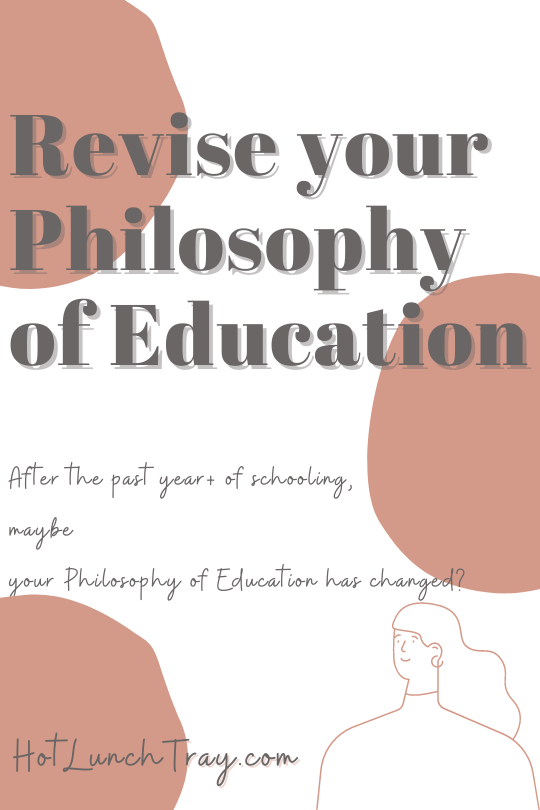Maybe after the emergency learning last spring into the normalized pandemic teaching of this past year your philosophy of education has changed. It is time to revise your philosophy of education. Even educators who don’t feel like their philosophy has been impacted by the past 15 months {and maybe into next school year} should consider this opportunity. I hope that educators would write down their current philosophy just to discover changes. If not, their supervisors may discover changes to be made.

What changed?
Before the pandemic impacted the way K-12 education was doing business the majority of teachers knew face-to-face instruction best (and often only) as custodial. While the students were at school, the teachers had a captive audience, and we “counted” them in a certain manner. Once the students were not in our school buildings, we struggled with how to “count” them. {Read: I address the lack of opportunity to learn from both sides of the learning continuum}
If the background knowledge you have about K12 learning is the traditional face-to-face model it is difficult to fully consider a blended learning model. The same is true for those who only know online learning. If you don’t understand the exact opposite of what you are doing how do you know when you’ve reached the middle ground?
Where are you on the Learning Continuum?
What Should I Do?
Ponder what you have learned over the past year about how to be present with your students from a distance. While synchronous sessions are one way to be present, consider how a well-crafted Philosophy of Education statement could help set an expectation for you, the learners, and their families of how to engage in the online or blended classroom. Craft sustainable acts of presence online so that some time savings exists this coming school year.
Consider this opportunity as one where you can define participation with the content, between students, and student creation to demonstrate mastery regardless of the modality of teaching. As you revise your Teaching Philosophy you can address issues discovered in the emergency remote to normalized pandemic teaching periods. Thinking about the variety of approaches you likely experimented with this past year you may have new tools and outlooks to include in this statement.
Where Do I Start?
Consult these resources for rewriting your Philosophy of Education and think about including this in summer professional learning or back-to-school activities as a bridge from the height of last year’s activity to a more normalized school year:







1 Pingback